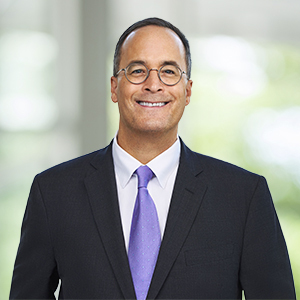The Ninth Circuit ruled on Monday, September 28, that California Private Attorney General Act (“PAGA”) claims cannot be waived in employment arbitration agreements, following the rule announced by the California Supreme Court in Iskanian v. CLS Transportation Los Angeles, LLC, 59 Cal. 4th 348 (2014). With this 2-1 ruling, the Ninth Circuit majority found that the Iskanian rule barring PAGA waivers is not preempted by the Federal Arbitration Act (“FAA”).
In Sakkab v. Luxottica Retail N. Am., Plaintiff brought a putative class action raising class employment-related claims and a non-class representative claim for civil penalties under PAGA. Luxottica moved to compel arbitration and dismiss the complaint, based on a dispute resolution agreement signed by Plaintiff. The dispute resolution agreement prohibited Plaintiff from bringing class or representative PAGA claims. The district court granted Luxottica’s motion, compelling arbitration and dismissing the case. Plaintiff appealed arguing that the provision prohibiting him from bringing any PAGA claims on behalf of other employees was unenforceable under California law.
In the meantime, the California Supreme Court issued its ruling in the landmark Iskanian case holding that while class action waiver agreements were enforceable, arbitration agreements waiving PAGA claims are not enforceable under California law. This meant that PAGA waiver provisions could not be enforced in California state courts, but it remained unclear as to their viability in federal courts. The Iskanian ruling had been generally rejected by California federal district courts based on the rationale that, under AT&T Mobility LLC v. Concepcion, 131 S. Ct. 1740 (2011), the FAA preempted the Iskanian holding. See e.g. Lucero v. Sears Holdings Mgmt. Corp., No. 3:14-cv-01620 (S.D. Cal, Dec. 2, 2014), Mill v. Kmart Corp., No. 14-cv-02749-KAW at *7 (N.D. Cal. Nov. 26, 2014), Langston et al. v. 20/20 Cos. Inc. et al., No 5:14-cv-01360 (C.D. Cal. Oct. 17, 2014) and Ortiz v. Hobby Lobby Stores Inc., No. 2:13-cv-01619 (E.D. Cal. Oct. 1, 2014).
In Sakkab, however, the Ninth Circuit majority rejected the preemption argument holding that “[f]ollowing the logic of Concepcion… the Iskanian rule is a “generally applicable” contract defense that may be preserved by [the FAA’s] saving clause” because “the Iskanian Rule does not conflict with the FAA’s purposes.” The Ninth Circuit reasoned that the Iskanian rule does not conflict with the FAA purposes “because it leaves parties free to adopt the kinds of informal procedures normally available in arbitration” and “only prohibits them from opting out of the central feature of the PAGA’s private enforcement scheme-the right to as a private attorney general to recover the full measure of penalties the state could recover.” In so doing, the majority distinguished the rule at play in Concepcion barring class action waivers. The Court found here that the waived PAGA claims did not mandate procedures that interfere with arbitration, as the class action claims in Concepcion did.
Additionally, the Ninth Circuit relied on the Supreme Court’s instruction to grant deference to a State’s police powers and assume that such powers are not “superseded by the Federal Act unless that was the clear and manifest purpose of Congress.” The Ninth Circuit concluded that “the PAGA statute and the Iskanian rule reflect California’s judgment about how best to enforce its labor laws” and that the FAA was not intended preclude states from authorizing qui tam actions, such as PAGA, to enforce state law. The Ninth Circuit, therefore, reversed and remanded the PAGA claims to the district court for determination of where those claims should be resolved—in federal court or in arbitration.
Judge N. Randy Smith issued a dissent arguing that the PAGA waiver provisions should have been enforced because the Court should have deferred to the FAA’s “liberal federal policy favoring arbitration,” which under Concepcion favored preemption of the Iskanian rule.
Sakkab was one of three cases pending before the Ninth Circuit on the issue of PAGA waivers. The Court has not yet issued rulings on the other two—Sierra v. Oakley Sales Corp., Case No. 13-55891 and Michael Hopkins v. BCI Coca-Cola Bottling Company of Los Angeles, Case No., 13-56126.
The Supreme Court has denied employers’ petitions for review of the Iskanian rule twice: First in Iskanian v. CLS Transp. Los Angeles, LLC (cert denied Jan. 20, 2015) and also in Bridgestone Retail Operations LLC v. Brown, et al. (cert denied on June 1, 2015). Thus, a Supreme Court’s review of Sakkab may not be forthcoming, and employers can no longer rely on PAGA waiver provisions to eliminate the threat of representative PAGA actions. While class action waiver provisions remain enforceable under Iskanian, California legislators are moving forward with a bill that would curtail the availability of those provisions as well.
- Partner
Roland’s practice focuses exclusively on employment and labor law. Roland has exclusively handled employment cases since 1992. His recent awards and recognition include the following: 2020 Top Labor and Employment Lawyer in ...
- Partner
Emily co-chairs the firm’s labor and employment group and has a national practice focusing on complex employment and wage and hour litigation and advice. Emily is an accomplished trial lawyer who defends employers in complex ...


